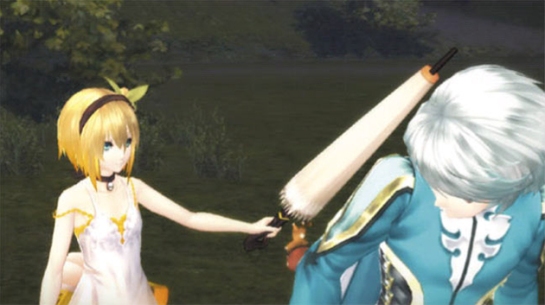I disprove the whole “Japanese gaming is dead” narrative. This kind of shortcut shows at best self-sufficency and intellectual mediocrity. That said, such persistent talk doesn’t come from nowhere. So let’s not duck the issue and establish an impartial diagnosis. An increasing number of signs point to one thing : has Japan thrown the towel in the crazy race of today’s gaming industry?
One connotation of this is financial : do the Japanese have the means of their ambition? In fact, the fiscal year ended in March 2014 was fairly good in the land of the Rising Sun. As you can see on GameCharts.fr, Japanese shareholders are rubbing their hands. NamcoBandai’s media departement has experienced solid growth for 3 years, Sega reaps healthy profits despite tax assets depreciations, SquareEnix is back in green, Gung Ho’s business skyrockets, TecmoKoei has ordered the champagne, just like Falcom and NIS whose profits were multiplied by 2 and 4 respectively, while Capcom cashes on Monster Hunter. Only Konami has the blues, but not as much as EA, Activsion or Ubisoft whose result has melted away. Packed with all this money, the Japanese can therefore set up large-scale projects and steal the spotlight. They did not…
Late 2013, a persistent rumor was predicting that the new Tales of game would be on PS4. The words being from producer Hideo Baba himself, I was sure the time had come. Imagine my disappointment when Tales of Zestiria was officially announced for… PS3! All that in a context in which western developers already invest heavily on next-gen consoles with huge titles like Battlefield 4 or Watchdogs, with certain success given that next-gen versions sell a lot more than former ones. And the second wave will hit even harder with Destiny, The Division and The Witcher 3 to cite a few. On the other side, made in Japan projects are still scarce : FFXV, Kingdom Hearts 3, Metal Gear Solid V and Bloodborne. The Evil Within is also a good contender. Alien Isolation might end up surprising us. But except for SquareEnix and Konami, you can hardly say that Japan is full of next-gen activity.
NamcoBandai, elected by the economic press most powerful Japanese publisher, has recently revealed that The Idolm@ster PS4 was still on the drawing board. We don’t hear much from Deep Down, Capcom’s game seem to disappoint every time it is shown. TecmoKoei doesn’t give a fuck and keeps making PS4 ports of its Musô series, while waiting lazily for generous subsidies from Nintendo in the Hyrule Warriors and Fatal Frame V projects. Acquire is adapting Akiba’s Trip 2 for PS4 but the graphical improvement is barely visible. Natural Doctrine from Kadokawa flopped hard and, worst of the worst, Lily Bergamo became Let It Die! Ironically, it’s Compile Heart that will release the very first PS4-exclusive JPRG. Even if it looks more like a PS3 game, *ω* Quintet symbolizes the risk-taking the rest of Japan seem to fear. Not only that, but Hyperdimension VII should follow suit, again exclusively on PS4.
For Japanese financial controllers, PS3, PSVita and 3DS are safe business environments. Sega officialised Shining Resonance a few weeks ago. TecmoKoei will release Atelier Shallie this month and PSVita project flourish. When developers respect certain criterias, core fans always open their wallets. It’s somewhat the problem : Japanese publishers are reluctant to go beyond their established markets, all the more true that it’s internationalizing rapidly. Bear in mind that this has nothing to do with quality : even technically not as advanced as their western counterparts, I firmly believe that Japanese games will easily stand the comparison in terms of design, gameplay or emotions. Still, thinking only short-them can only lead to difficult times : PS4 is dropping at worrying pace and the whole market collapsed by 30%. PS4 needs support, PS3 and PSVita won’t compensate the failed expansion of a new generation.
I have no doubt Japanese developers will live up to their history in terms of quality and innovation, but the lack of ambition is obvious. Except for the grand titles, you don’t feel the hype, the real one, the one that makes the headlines and transcends the marketing target. It’s not “the end of Japanese gaming” but a lack of vision. E3 didn’t provided little clue on Japan’s ambitions for the future, so we’ll have to wait for TGS to see if they really waved the white flag.

